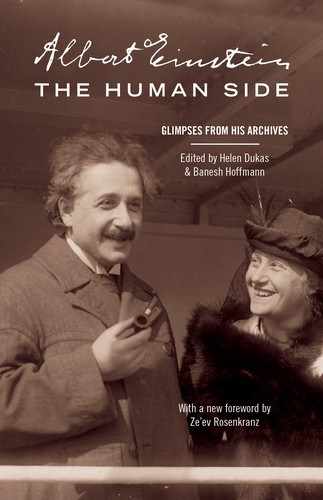ALBERT EINSTEIN was born in Ulm, Germany, on 14 March 1879, his sister Maja being born in Munich two and a half years later. Given a magnetic compass at the age of five, he was overwhelmed by a feeling of awe and wonder that remained with him for the rest of his life and underlay his greatest scientific achievements. At age twelve he felt a similar wonder on first looking into a geometry textbook.
He hated the discipline and rote learning in the German schools and at age fifteen became a school dropout. In 1896 he entered the Polytechnic Institute in Zurich, Switzerland. On graduating in 1900, having antagonized his professors, he was unable to obtain an academic position.
In 1901 he became a Swiss citizen. In 1902, after many discouragements, he obtained a job in the Swiss patent office in Bern. He then married a former fellow student, Mileva Maric, by whom he had two sons; but the marriage ended in amicable divorce in 1919.
Meanwhile, at the patent office, in the fabulous year 1905, his genius burst into dazzling flower. The theory of relativity was only one of his several major contributions in that year.
Not till 1909 did he leave the patent office, but then advancement was rapid and by 1914 he was at the top of his profession as a salaried member of the Royal Prussian Academy of Sciences in Berlin.
As a Swiss citizen, he took no part in World War I, which broke out in August 1914. In 1915 he set forth his masterpiece, the general theory of relativity. In 1919 he married a widowed cousin, Elsa, who had two daughters by her first marriage. Later in 1919, with verification of a prediction of his theory, Einstein became world famous overnight. He was awarded the 1921 Nobel Prize in Physics.
The rest may be covered here in less detail since it hinges on one key year, 1933. In Germany Einstein’s fame and brave outspokenness led to anti-Semitic attacks on both him and his theories. When the Nazis seized power early in 1933, he was in the United States. He never returned to Germany. Instead, he stayed a few months in Le Coq, in Belgium, spent a brief time in England, and in October of 1933 moved to the United States to join the faculty of the newly-founded Institute for Advanced Study in Princeton, New Jersey, where he remained for the rest of his life. He died on 18 April 1955.
